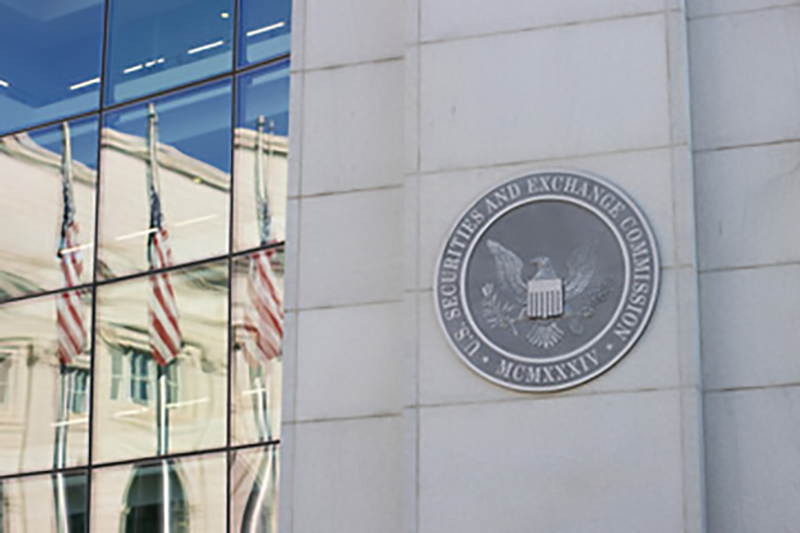There’s a new regulation that aims to improve the security of businesses in the financial sector. According to the European Union, the Digital Operational Resilience Act (DORA) is all about making sure that financial companies are secure and stable even during major “operational disruptions,” like Cyberattacks or technology outages.1
Here’s what this regulation means for you, how it can impact your operations, and the steps you can take to prepare for compliance.

DORA’s Role In Cybersecurity
This regulation covers the whole financial sector, including banks, insurance companies, payment providers, and even tech companies that serve financial firms.
DORA focuses on five main areas to help financial companies become strong and resilient within the digital space:
- ICT Risk Management/ICT Third-Party Risk Management: DORA requires companies to set up strong processes to manage any technology-related risks. This means regularly checking their systems to identify and patch any vulnerabilities.
- Digital Operational Resilience Testing: Companies must often test their systems to see how they hold up against digital breakdowns or attacks. These tests help them find the vulnerabilities and improve their defenses.
- Oversight of Critical Third-Party Providers: If a company relies on external tech providers for services like cloud storage, it must ensure that those providers meet the same resilience standards. Any risk from a third party must not compromise the company’s stability.
- ICT-related Incidents: DORA asks companies to report any major cyber incidents or disruptions quickly to relevant authorities. This reporting helps authorities respond faster and keeps everyone informed about potential risks in the financial sector.
- Information Sharing: DORA encourages companies to share knowledge about digital risks and best practices to help each other out. This means that if one company learns something new about a threat, they can help others prepare.
With DORA, the EU wants to build a financial sector that’s well-prepared and resilient, no matter what digital challenges come its way.
DORA’s Impact on Businesses
Here’s how DORA impacts businesses and relates to U.S. businesses:
How It Affects Businesses
- DORA requires companies to improve their Cybersecurity measures, so you will need to invest in better technology and training for your staff to protect against cyber threats.
- Under DORA, businesses must regularly test their digital systems to ensure they work correctly during emergencies and help you identify vulnerabilities before they become major issues.
- If your business experiences a major cyber incident, DORA requires you to report it. This transparency helps everyone understand the risks and how to respond effectively.
- DORA supports the idea of securing the entire supply chain to ensure that your partners and vendors also follow strong Cybersecurity practices.
Relation To U.S. Businesses
While DORA is an EU regulation, it can still affect U.S. businesses in several ways:
- If your U.S. business operates in Europe or works with European clients, you may need to comply with DORA’s requirements to continue your operations there.
- As DORA sets higher security standards in Europe, U.S. businesses may feel pressure to improve their Cybersecurity measures to remain competitive and trustworthy.
- The success of DORA in the EU may inspire U.S. lawmakers to consider similar regulations. If that happens, you might need to prepare for new regulations in the U.S. that aim to enhance digital resilience across various sectors.
While it mainly affects companies in Europe, its influence can reach U.S. businesses through global connections and the possibility of new regulations.
How To Prepare For DORA Compliance
Preparing for DORA compliance is important if your business operates in the financial sector or works with European clients.
The following are some simple steps you can take to get ready:
1. Start By Learning What DORA Requires
Look for guidelines and rules that explain what you need to do regarding Cybersecurity, risk management, and reporting incidents. Knowing the specifics will help you plan effectively.
2. Assess Your Current Security Measures
Take a good look at your current cybersecurity practices. Ask yourself questions like:
- Do you have strong passwords and encryption?
- Are your systems regularly patched and updated?
- How do you train your staff about Cybersecurity risks?
Identifying any gaps in your security can help you know where to focus your efforts.
3. Improve Your Cybersecurity
Once you know your weaknesses, it’s time to make improvements, such as:
- Investing in better software and hardware to protect against cyber threats.
- Creating clear rules about using technology, handling sensitive information, and responding to incidents.
- Training your employees on Cybersecurity best practices, such as recognizing phishing emails and secure password management.
4. Develop A Risk Management Plan
DORA requires businesses to have a plan to manage risks related to technology and digital operations. Your plan may include:
- Listing potential threats to your business, such as Cyberattacks or system failures.
- Considering how these risks could affect your operations.
- Planning how you will respond to incidents, including who will be in charge and what steps to take.
5. Keep Systems In Check With Regular Tests
Schedule regular tests to see how well your Cybersecurity measures hold up during a crisis. You could invest in Cyberattack simulations and penetration testing solutions to help you find areas for improvement and ensure your team knows how to react.
6. Establish Clear Procedures For Reporting Problems
Make sure your team knows what incidents to report and how to do it quickly. This will help you stay compliant with DORA’s requirements.
7. Collaborate With Partners & Vendors
Ensure that your partners and vendors also follow strong Cybersecurity practices. Share your DORA compliance goals with them and encourage them to improve their security measures. A secure supply chain is crucial for your overall resilience.
Keeping up with any changes in DORA regulations or best practices in Cybersecurity can be daunting, but regularly reviewing compliance efforts and making adjustments as needed can help your business stay on track.

FAQ
What Is DORA In Resilience?
DORA (Digital Operational Resilience Act) is a set of rules that helps businesses in the financial sector become secure against digital threats. It focuses on managing technology risks, testing systems, and ensuring that companies can handle Cyberattacks or tech disruptions to keep services running smoothly.
What Does DORA Cover?
DORA covers several industries in the financial sector. This includes banks, insurance companies, investment firms, payment providers, and financial technology companies. Basically, if your business deals with financial services or technology, DORA regulations apply to you to support robust digital security and resilience.
Does DORA Apply To US Companies?
DORA mainly applies to companies in the European Union, but it can affect US companies that work with EU clients or partners. 2Secure Corp adheres to all the latest and existing regulations to ensure that businesses are secure and resilient in their digital operations—providing peace of mind for all our clients, regardless of location.

Source:
- Digital Operational Resilience Act (DORA) – Regulation (EU) 2022/2554. (n.d.). Www.digital-Operational-Resilience-Act.com. https://www.digital-operational-resilience-act.com/







